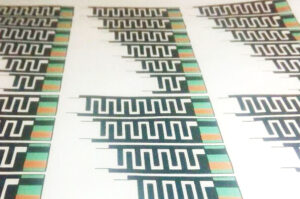Dissolvable electronics for internal use

June 11, 2025 – Dissolvable or transient electronics can be highly useful in biomedical and environmental applications – for example, in implantable sensors or devices. However, these devices must be made of materials that dissolve safely in biological environments. Lithium-ion batteries are unsuitable due to their toxic contents.
Scientists at Binghamton University (New York State) developed a porous, rough-surfaced electrode that supports the growth of microorganisms and increases electricity generation. By coating dissolvable paper with a low pH polymer – which activates only in acidic environments like polluted areas or the human digestive system – they were able to improve both the battery’s output voltage and its lifespan.
While these batteries currently generate only small amounts of power, researchers view their experiments as a starting point for further development.
The study was published earlier this year in Small under the title: ‘Dissolvable Probiotic-Powered Biobatteries: A Safe and Biocompatible Energy Solution for Transient Applications.’









